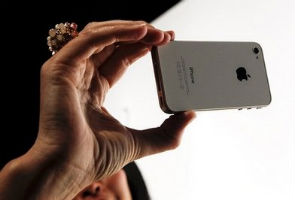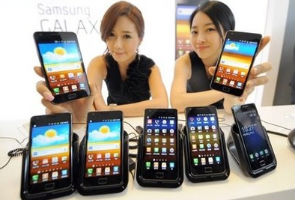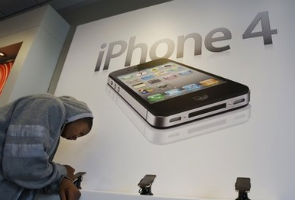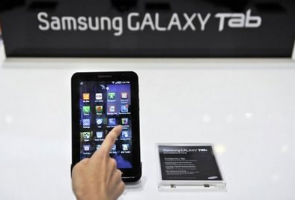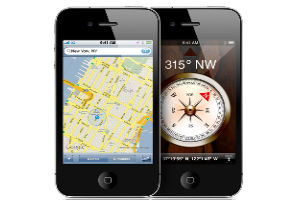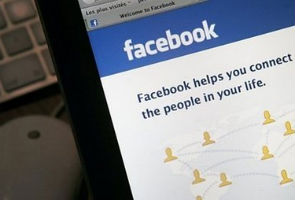If you're worried about privacy, you can turn off the function on your smartphone that tracks where you go. But that means giving up the services that probably made you want a smartphone in the first place. After all, how smart is an iPhone or an Android if you can't use it to map your car trip or scan reviews of nearby restaurants?
The debate over digital privacy flamed higher this week with news that Apple Inc.'s popular iPhones and iPads store users' GPS coordinates for a year or more. Phones that run Google Inc.'s Android software also store users' location data. And not only is the data stored -- allowing anyone who can get their hands on the device to piece together a chillingly accurate profile of where you've been -- but it's also transmitted back to the companies to use for their own research.
Now, cellphone service providers have had customers' location data for almost as long as there have been cellphones. That's how they make sure to route calls and Internet traffic to the right place. Law enforcement analyzes location data on iPhones for criminal evidence -- a practice that Alex Levinson, technical lead for firm Katana Forensics, said has helped lead to convictions. And both Apple and Google have said that the location data that they collect from the phones is anonymous and not able to be tied back to specific users.
But lawmakers and many users say storing the data creates an opportunity for one's private information to be misused. Levinson, who raised the iPhone tracking issue last year, agrees that people should start thinking about location data as just as valuable and worth protecting as a wallet or bank account number.
"We don't know what they're going to do with that information," said Dawn Anderson, a creative director and Web developer in Glen Mills, Pa., who turned off the GPS feature on her Android-based phone even before the latest debate about location data. She said she doesn't miss any of the location-based services in the phone. She uses the GPS unit in her car instead.
"With any technology, there are security risks and breaches," she added. "How do we know that it can't be compromised in some way and used for criminal things?"
Privacy watchdogs note that location data opens a big window into very private details of a person's life, including the doctors they see, the friends they have and the places where they like to spend their time. Besides hackers, databases filled with such information could become inviting targets for stalkers, even divorce lawyers.
Do you sync your iPhone to your computer? Well, all it would take to find out where you've been is simple, free software that pulls information from the computer. Voila! Your comings and goings, clandestine or otherwise, helpfully pinpointed on a map.
One could make the case that privacy isn't all that prized these days. People knowingly trade it away each day, checking in to restaurants and stores via social media sites like Foursquare, uploading party photos to Facebook to be seen by friends of friends of friends, and freely tweeting the minutiae of their lives on Twitter.
More than 500 million people have shared their personal information with Facebook to connect with friends on the social networking service. Billions of people search Google and Yahoo each month, accepting their tracking "cookies" in exchange for access to the world's digital information. And with about 5 billion people now using cellphones, a person's location has become just another data point to be used for marketing, the same way that advertisers now use records of Web searches to show you online ads tailored to your interest in the Red Sox, or dancing, or certain stores.
Autumn Bradfish, a sophomore at the University of Iowa, said she doesn't see a problem with phone companies using her location to produce targeted ads, as long as they deliver relevant offers to her. She said she would not disable the tracking feature on her iPhone because she enjoys using a mapping app that helps her find new restaurants.
"I'm terrible with maps," she said.
The very fact that your location is a moving target makes it that much more alluring for advertisers. Every new place you go represents a new selling opportunity. In that sense, smartphone technology is the ultimate matchmaker for marketers looking to assemble profiles on prospective customers.
That profiling is what makes some users uneasy.
At a technology conference in San Francisco this past week, security researchers disclosed that iPhones and iPads keep a small file of location data on their users. That file -- which is not encrypted and thus vulnerable to hacking -- is transferred when you sync your phone to your computer to back up information. Security firm F-Secure Corp. said the iPhone sends users' location data to Apple twice a day to improve its database of known Wi-Fi networks.
The data that is available goes back to last year's launch of Apple's new iOS 4 operating software. Researchers say the tracking was going on before that, though the file was in a different format and wasn't easy to find until the new system came out. In June, Apple added a section to its privacy policy to note that it would collect some real-time location data from iPhone users in order to improve its features.
While Apple has been silent about the latest findings, it has noted that its practice is clearly spelled out in user agreements. Other phone makers say the same. Google acknowledged this past week that it does store some location data directly on phones for a short time from users who have chosen to use GPS services, "in order to provide a better mobile experience on Android devices." It too stressed that any location sharing on Android is done with the user's permission.
But consumer advocates warn that too many people click right through privacy notifications and breeze over or ignore such legalese. Case in point _some iPhone users who found about this past week about the data storage say they didn't know anything about Apple's tracking.
"It's like being stalked by a secret organization. Outrageous!" said Jill Kuraitis, 54, a freelance journalist in Boise, Idaho. "To be actively tracking millions of people without notification? It's beyond unacceptable."
It's easy to tell smartphone users that turning off tracking is as easy as finding their way to the settings menu. But to opt out of GPS service means preventing the software on your phone from using any information about where you are. That means cutting yourself off from the vast array of mobile apps that offer discounts and ads, allow you to connect more easily with friends who use social media, and simplify your life with map directions. Not a great trade-off.
And if you thought there were laws that curbed tracking, think again.
The government prohibits telephone companies from sharing customer data, including location information, with outside parties without first getting the customer's consent. But those rules don't apply to Apple and other phone makers. Nor do they apply to the new ecosystem of mobile services offered through those apps made by third-party developers.
What's more, because those rules were written for old-fashioned telephone service, it's unclear whether they apply to mobile broadband service at all -- even for wireless carriers that are also traditional phone companies, like AT&T Inc. and Verizon.
Both the Federal Communications Commission and the Federal Trade Commission have said they are looking into the issue. But for now, it's up to smartphone users to decide: Is it privacy they are most concerned about, or convenience?

